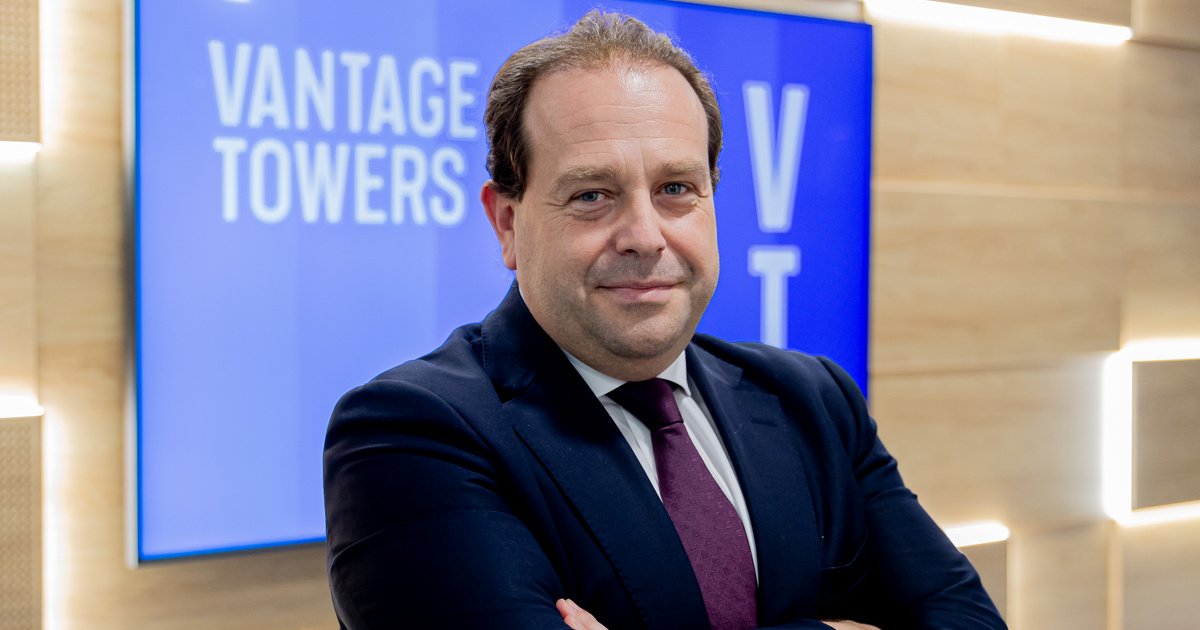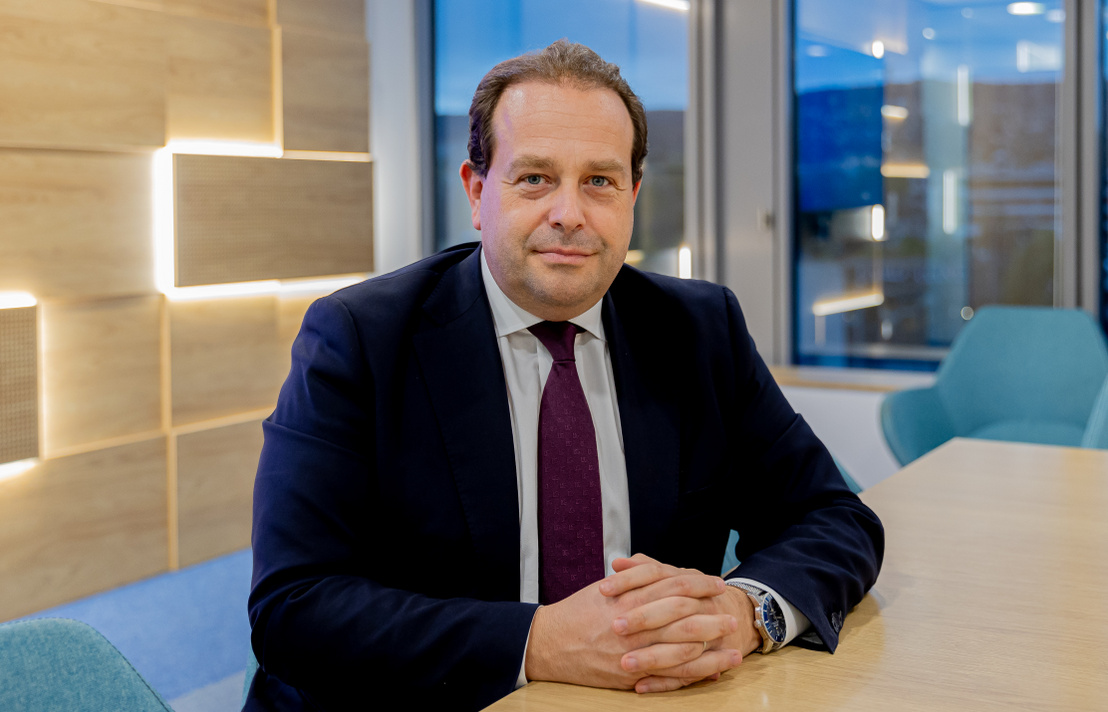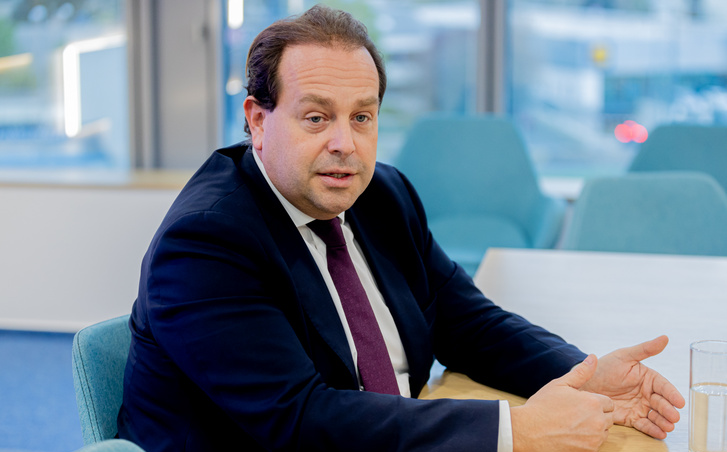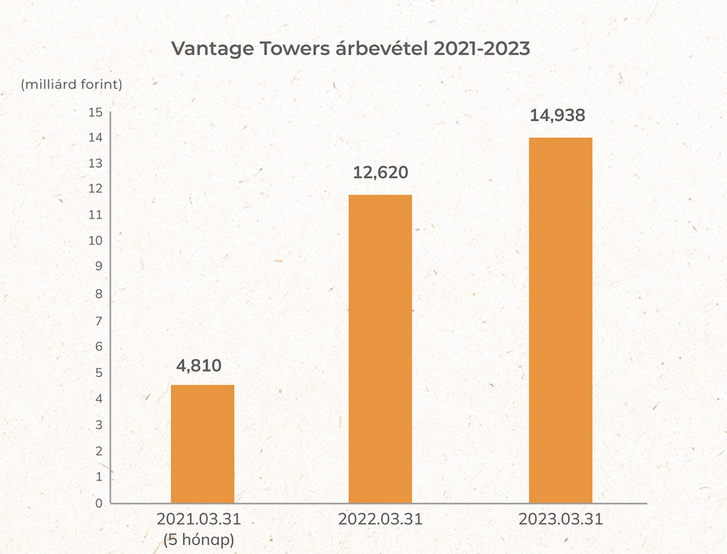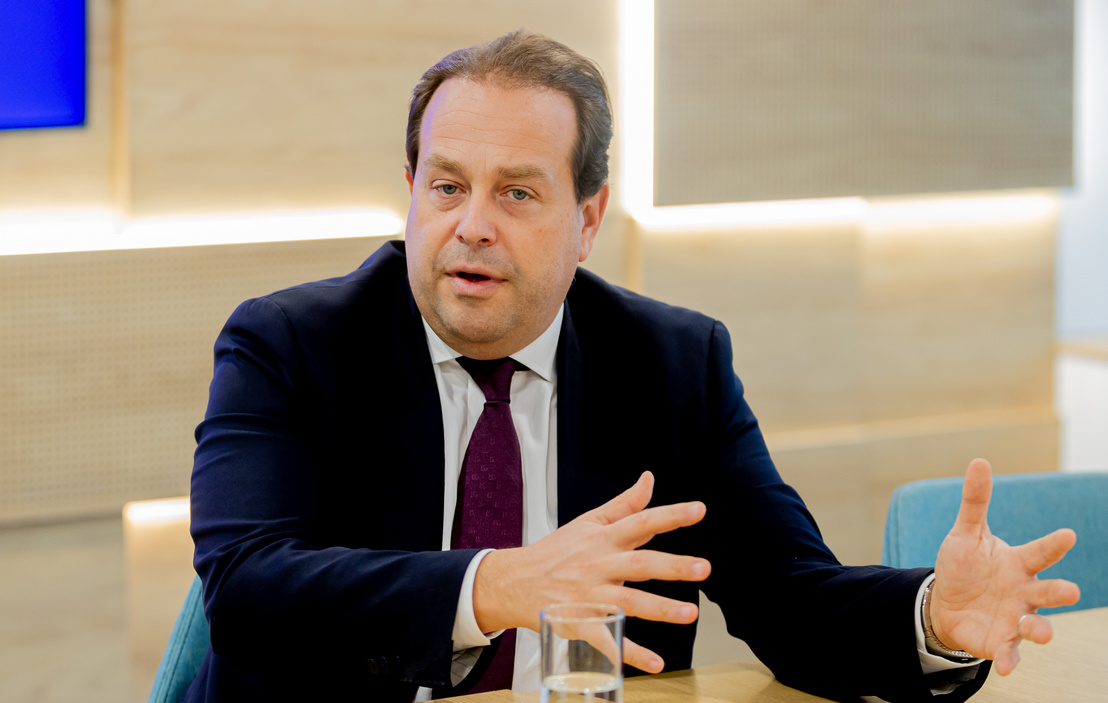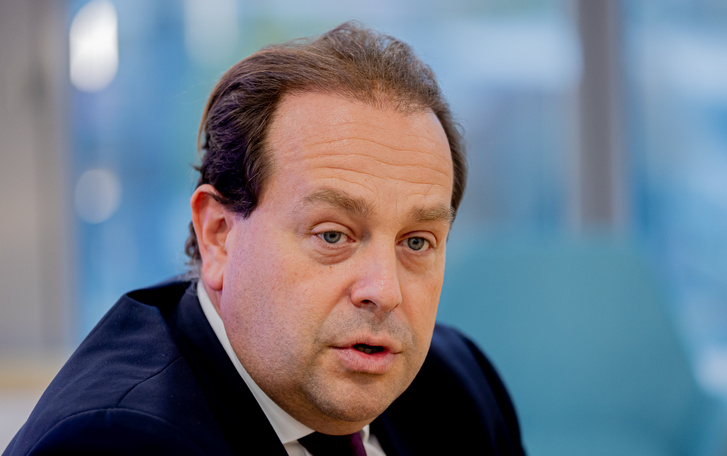Hungarian Company Becomes the Nexus of Mobile Infrastructure Across Five Countries
In a career marked by adaptability, courageous leaps from springboards, and recurring challenges, Budapest-based Budai J.
Gergő has made an indelible mark. Over two decades ago, Gergő began his career as a legal eagle at the Hungarian office of White & Case, fresh from acquiring his law and political science degrees from Pázmány Péter Catholic University. Here, he was tutored by the veritable giants of his profession, the last doyens, as he put it.
At White & Case, he gleaned invaluable insights from mentors and colleagues, and his career took him to Brussels, London, and Washington, D.C. Despite opportunities abroad, Gergő chose to remain in Hungary, working internationally but rooting his life in his homeland.
"Traveling, seeing the world, learning these experiences are priceless. We should strive to bring home the best practices from abroad and implement them here. Let's develop Hungary, make it better, and also help and contribute to the development of others!" Gergő shares his life philosophy, deeply influenced by his diplomat father who exposed him to various cultures from a young age.
While still at the law firm, one of its clients, Pfizer, tapped him to become its Hungarian legal director despite his not meeting the age requirement of 35 at the time, being only 28. "I wish I had such problems more often," he says with a smile, as he became the youngest board member at the Hungarian Pfizer. Quickly mastering the pharmaceutical industry, Gergő worked across Czech Republic, Romania, Poland, Belgium, and served on Pfizer's global advisory board in New York.
The turning point in his career came with the birth of his first daughter, prompting him to seek a work-life balance closer to home. He was then approached by Mid Europa Partners, enticing him with the challenge of managing Invitel, a telecommunications company then in decline. "I swapped a secure office on New York's 42nd Street for one behind IKEA in Budaörs," he recalls, his first day coinciding with an April Fool's Day that felt all too real when presented with the company's dire financials. Yet, under his leadership, Invitel transformed into Invitech, a thriving entity eventually absorbed along with Digi into the 4iG conglomerate.
Leaving 4iG, Gergő was headhunted by Vodafone Hungary as a deputy CEO overseeing wholesale and international relations, eventually helping to elevate Vodafone to a major market player, launching revolutionary services like NBIoT and 5G, and ensuring quick customer service that rendered a VIP service obsolete.
The narrative shifts with Gergő's venture into Vantage Towers, the infrastructure spinoff from Vodafone Europe, creating a robust tower company that he led in Hungary, later becoming a regional CEO overseeing the Czech, Romanian, Irish, and Portuguese markets. Under his leadership, Vantage Towers integrated nearly 88,000 sites across these countries, establishing a significant footprint in the European telecommunications infrastructure landscape.
Addressing the fears surrounding 5G technology, Gergő stands firm against misinformation, emphasizing the reliance on scientific evidence and the safety of electromagnetic frequency use well within established guidelines. Moreover, he envisions a future where 5G fosters advancements in telemedicine, smart cities, and IoT applications, contributing to digital economic growth and societal well-being.
On an environmental note, Gergő is proud that Vantage Towers operates on renewable energy, underscoring his commitment to green initiatives and the digital transformation's potential risks, particularly for the youth. He advocates for balance, leveraging technology not for incessant social media consumption but for enriching human lives and connectivity.
In closing, Budai offers guidance to aspiring professionals: set goals, remain curious, and persevere with humility. Crossing industry boundaries, he underscores the transferable nature of skills, encouraging bold moves towards personal and professional fulfillment.
At White & Case, he gleaned invaluable insights from mentors and colleagues, and his career took him to Brussels, London, and Washington, D.C. Despite opportunities abroad, Gergő chose to remain in Hungary, working internationally but rooting his life in his homeland.
"Traveling, seeing the world, learning these experiences are priceless. We should strive to bring home the best practices from abroad and implement them here. Let's develop Hungary, make it better, and also help and contribute to the development of others!" Gergő shares his life philosophy, deeply influenced by his diplomat father who exposed him to various cultures from a young age.
While still at the law firm, one of its clients, Pfizer, tapped him to become its Hungarian legal director despite his not meeting the age requirement of 35 at the time, being only 28. "I wish I had such problems more often," he says with a smile, as he became the youngest board member at the Hungarian Pfizer. Quickly mastering the pharmaceutical industry, Gergő worked across Czech Republic, Romania, Poland, Belgium, and served on Pfizer's global advisory board in New York.
The turning point in his career came with the birth of his first daughter, prompting him to seek a work-life balance closer to home. He was then approached by Mid Europa Partners, enticing him with the challenge of managing Invitel, a telecommunications company then in decline. "I swapped a secure office on New York's 42nd Street for one behind IKEA in Budaörs," he recalls, his first day coinciding with an April Fool's Day that felt all too real when presented with the company's dire financials. Yet, under his leadership, Invitel transformed into Invitech, a thriving entity eventually absorbed along with Digi into the 4iG conglomerate.
Leaving 4iG, Gergő was headhunted by Vodafone Hungary as a deputy CEO overseeing wholesale and international relations, eventually helping to elevate Vodafone to a major market player, launching revolutionary services like NBIoT and 5G, and ensuring quick customer service that rendered a VIP service obsolete.
The narrative shifts with Gergő's venture into Vantage Towers, the infrastructure spinoff from Vodafone Europe, creating a robust tower company that he led in Hungary, later becoming a regional CEO overseeing the Czech, Romanian, Irish, and Portuguese markets. Under his leadership, Vantage Towers integrated nearly 88,000 sites across these countries, establishing a significant footprint in the European telecommunications infrastructure landscape.
Addressing the fears surrounding 5G technology, Gergő stands firm against misinformation, emphasizing the reliance on scientific evidence and the safety of electromagnetic frequency use well within established guidelines. Moreover, he envisions a future where 5G fosters advancements in telemedicine, smart cities, and IoT applications, contributing to digital economic growth and societal well-being.
On an environmental note, Gergő is proud that Vantage Towers operates on renewable energy, underscoring his commitment to green initiatives and the digital transformation's potential risks, particularly for the youth. He advocates for balance, leveraging technology not for incessant social media consumption but for enriching human lives and connectivity.
In closing, Budai offers guidance to aspiring professionals: set goals, remain curious, and persevere with humility. Crossing industry boundaries, he underscores the transferable nature of skills, encouraging bold moves towards personal and professional fulfillment.
Translation:
Translated by AI
AI Disclaimer: An advanced artificial intelligence (AI) system generated the content of this page on its own. This innovative technology conducts extensive research from a variety of reliable sources, performs rigorous fact-checking and verification, cleans up and balances biased or manipulated content, and presents a minimal factual summary that is just enough yet essential for you to function as an informed and educated citizen. Please keep in mind, however, that this system is an evolving technology, and as a result, the article may contain accidental inaccuracies or errors. We urge you to help us improve our site by reporting any inaccuracies you find using the "Contact Us" link at the bottom of this page. Your helpful feedback helps us improve our system and deliver more precise content. When you find an article of interest here, please look for the full and extensive coverage of this topic in traditional news sources, as they are written by professional journalists that we try to support, not replace. We appreciate your understanding and assistance.
